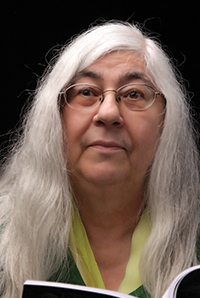A Flower More Enduring
poems by
Helen Losse
ISBN: 978-1-59948-879-0, 57 pages, $14 (+ shipping)
Release Date: September 21, 2021
The Advance Sale Discount price has expired. Those who prefer to pay by check, the check price is $18/book (which includes shipping) and should be sent to: Main Street Rag, PO BOX 690100, Charlotte, NC 28227-7001.
 Helen Losse is the author of nine previous poetry collections, Poetry Editor Emeritus for The Dead Mule School of Southern Literature, and former Associate Poetry Editor for Kentucky Review. Her poems have been nominated for a Pushcart Prize, twice for a Best of the Net award, and anthologized in Literary Trails of the North Carolina Piedmont and The Southern Poetry Anthology, Volume VII: North Carolina.
Helen Losse is the author of nine previous poetry collections, Poetry Editor Emeritus for The Dead Mule School of Southern Literature, and former Associate Poetry Editor for Kentucky Review. Her poems have been nominated for a Pushcart Prize, twice for a Best of the Net award, and anthologized in Literary Trails of the North Carolina Piedmont and The Southern Poetry Anthology, Volume VII: North Carolina.
Poetry should be like “a shot-glass of Scotch.” In Helen Losse’s A Flower More Enduring, each repetition is meaningful, a different sampling that contains the essence of the thing concisely. The reader must sip these poems. ~Father Richard Childress, Pastor, St. John Vianney Catholic Church, Gallatin, TN
Helen Losse’s poems in A Flower More Enduring are “sky-gazers, looking for angels”. Choir-like, her stanzas sing thoughtful hymns: lines lifted in reverie, words arranged in spiritual bouquets, syllables counting like beads on a well-used rosary. Her poems are penned prayers and messages to self for peace in numbered days. Helen’s sought-after angels fly low and near in this serious-seeking collection of faith-full poems. ~Molly Rice, Author of Mill Hill
When is a flower more enduring than a stone pelican? As poet Helen Losse tells it, when God extracts “thorns and barbs from my soul,” and in so doing, transforms a person of faith from a sinner to (metaphorically) a rose. It’s an insight gained from her shopping for a lawn ornament. Unable to find the stone pelican she wanted, she refuses to settle for the clichéd pink flamingo, “hardly a symbol of inspiration.” ~Richard Allen Taylor
I want to eat ambrosia
Dine with the gods. Dance.
Seraphim at the gate, velvet-winged.
“Human plea is no heavenly call,”
says the tallest angel. “One should not
taste success too soon.”
“Yes, wait’s a word to ride the wind,”
floats from lips of another.
“Surely, you don’t think you can
comprehend God’s mind.”
I stretch hands skyward, palms uplifted.
Arms and voice seek incensed air.
Allurement vanishes with sunrise,
prayer unheard like a worn-out echo.
Then, just as silence
slices through morning,
Heaven’s jagged edge
cuts my finger to the bone.
One purple pansy
survives late
in autumn’s rotting leaves.
Frost-writing sparkles
on apartment windows.
The frigid moon leads me
to episodic memory.
Reflections glide on the fence
near the gelid lake.
Swirling snow showers
and rays of treacherous light
strike barren trees.
Ice bonds with chain-metal links,
and I cling to my longing.
Riding in a car at dusk
Look carefully
toward sunset’s brightest yellow.
You may have to squint
until light lowers
& seems closer to the man-made lake
over past yonder hill
where trees & tall weeds
silhouette:
then you can almost see God’s face,
followed by pink,
followed by blue,
followed by night so black
that on the way home
a few hours later
flashes of light
proclaim and then preach.
Windows from the camouflaged abbey
breach the dark. Radiant colors glow
like foretelling stars:
polychromatic shards pray
among cedars & deciduous trees.


 Helen Losse is the author of nine previous poetry collections, Poetry Editor Emeritus for The Dead Mule School of Southern Literature, and former Associate Poetry Editor for Kentucky Review. Her poems have been nominated for a Pushcart Prize, twice for a Best of the Net award, and anthologized in Literary Trails of the North Carolina Piedmont and The Southern Poetry Anthology, Volume VII: North Carolina.
Helen Losse is the author of nine previous poetry collections, Poetry Editor Emeritus for The Dead Mule School of Southern Literature, and former Associate Poetry Editor for Kentucky Review. Her poems have been nominated for a Pushcart Prize, twice for a Best of the Net award, and anthologized in Literary Trails of the North Carolina Piedmont and The Southern Poetry Anthology, Volume VII: North Carolina.